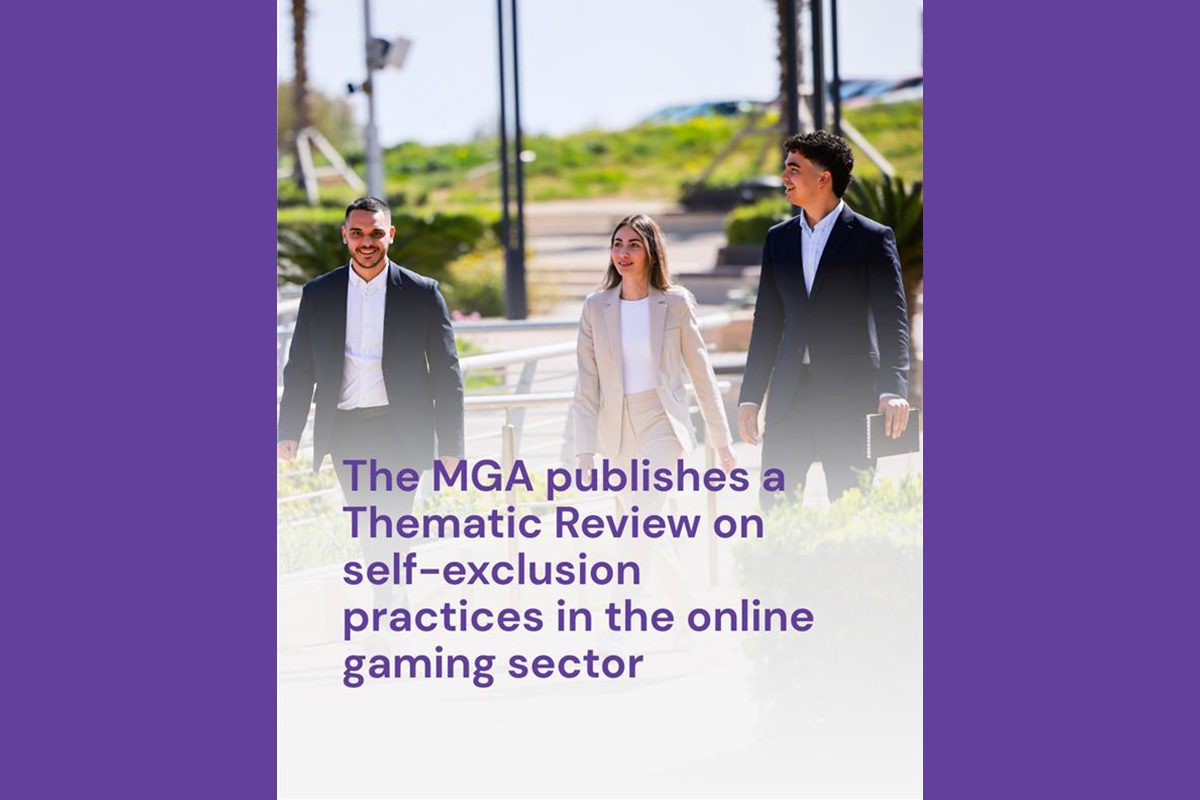Compliance Updates
UKGC confirms gambling on credit cards to be banned from April 2020

The Gambling Commission has announced a ban on gambling businesses allowing consumers in Great Britain to use credit cards to gamble.
The ban, which comes into effect on 14 April, follows the Commission’s review of online gambling and the Government’s Review of Gaming Machines and Social Responsibility Measures. A public consultation was carried out between August and November 2019.
24 million adults in Great Britain gamble, with 10.5 million of those gambling online. UK Finance estimate that 800,000* consumers use credit cards to gamble.
Separate research undertaken by the Commission shows that 22%** of online gamblers using credit cards to gamble are classed as problem gamblers – with even more at some risk of harm.
The ban, which will apply to all online and offline gambling products with the exception of non-remote lotteries, will provide a significant layer of additional protection to vulnerable people.
Neil McArthur, Gambling Commission chief executive, said:
“Credit card gambling can lead to significant financial harm. The ban that we have announced today should minimise the risks of harm to consumers from gambling with money they do not have.
“Research shows that 22% of online gamblers using credit cards are problem gamblers, with even more suffering some form of gambling harm.
‘“We also know that there are examples of consumers who have accumulated tens of thousands of pounds of debt through gambling because of credit card availability. There is also evidence that the fees charged by credit cards can exacerbate the situation because the consumer can try to chase losses to a greater extent.”
Mr McArthur said although he understood that some consumers used credit cards because they were convenient, the risk of harm to others was too high to allow the use of credit cards to continue.
“We realise that this change will inconvenience those consumers who use credit cards responsibly but we are satisfied that reducing the risk of harm to other consumers means that action must be taken.” he said. “But we will evaluate the ban and watch closely for any unintended circumstances for consumers.”
Mr McArthur warned that although likely to reduce gambling harm, the banning of credit cards needed to be accompanied by other efforts.
“The ban is part of our ongoing work to reduce gambling harm. We also need to continue the work we have been doing with gambling operators and the finance industry to ensure consumers only gamble with money they can afford to spend.”
Last year Department for Digital, Culture, Media and Sport (DCMS) ministers also met with banks and gambling operators to discuss their growing concerns, and how companies could use technology and customer data to help those at risk of developing gambling problems, including those using credit cards.
Culture Minister Helen Whately said:
“Whilst millions gamble responsibly, I have also met people whose lives have been turned upside down by gambling addiction.
“There is clear evidence of harm from consumers betting with money they do not have, so it is absolutely right that we act decisively to protect them.
“In the past year we have introduced a wave of tougher measures, including cutting the maximum stake on fixed odds betting terminals, bringing in tighter age and identity checks for online gambling and expanding national specialist support through the NHS Long Term Plan. We have also secured a series of commitments from five leading gambling operators that will include £100 million funding towards treatment for problem gamblers.
“But there is more to do. We will be carrying out a review of the Gambling Act to ensure it is fit for the digital age and we will be launching a new nationwide addiction strategy in 2020.
“We will not hesitate to take any further action necessary to protect people from gambling harm.”
Today has also seen the Commission announce changes to licence conditions which will require all online gambling operators to participate in the GAMSTOP scheme and offer their customers the service from 31 March.
Neil McArthur said:
“We welcome the fact that GAMSTOP have got to this stage in their development and encourage them to continue to improve their offer, particularly in relation to preventing those who have self-excluded being targeted by direct marketing.
“It is important that self-exclusion schemes are as effective as possible and they will be most effective when used in combination with other blocking tools such as gambling blocking software and payment card blocking.
Helen Whately added:
“We have been clear to all businesses that have connections to gambling, such as operators, social media platforms and banks, that they must be socially responsible and use the power of technology and data to help consumers manage their spending and protect them from harm.
“I have been encouraged by the majority of major high street banks introducing measures to allow customers to switch off spending on gambling through mobile apps.
“By making it a regulatory requirement for all online gambling websites licensed in Great Britain to sign up to Gamstop. I am confident that people who have taken the significant step to opt out of gambling will be well supported, alongside a wide range of other tools.”
Compliance Updates
MGA Publishes Results of Thematic Review on Self-exclusion Practices in Online Gaming Sector

The Malta Gaming Authority (MGA) has published the results of a Thematic Review on how online B2C licensees implement self‑exclusion and other responsible gambling safeguards. The Review sought to identify any systemic weaknesses and clarify regulatory expectations relating to player protection, highlighting areas performing well as well as opportunities for licensees to strengthen their practices.
The Review was carried out in 2025 following reports that some players were able to access multiple brands despite being self‑excluded due to problem gambling. It examined the real‑world performance of player protection tools across 20 licensees and 58 active URLs. A mystery shopping exercise assessed the effectiveness of self‑exclusion processes, cross‑brand account controls, and the presentation of responsible gambling protections at key points of play.
The findings presented in this document reaffirm the Authority’s ongoing commitment to safeguarding players and upholding the integrity of the online gaming sector. Overall, the Thematic Review indicates a positive level of compliance, with the majority of licensees assessed demonstrating practices that are broadly in line with regulatory expectations. At the same time, the Review highlights opportunities for further strengthening player protection measures across the sector.
The assessment outlines the specific areas where enhancements would be beneficial. These include delays in activating self‑exclusion, instances where exclusions were lifted without applying a mandatory cooling‑off period, challenges in detecting duplicate or closely matching player identity details across brands, the absence of limit‑setting prompts during registration, and incomplete information displayed within Reality Check pop‑ups. Together, these findings provide guidance where systems and processes can be enhanced to ensure player protection measures operate as intended.
The Authority has communicated the findings to the relevant licensees, each of whom has been asked to address the points raised and submit rectification plans. Follow‑up supervisory engagement will continue where necessary, including monitoring the implementation of corrective actions. This work forms part of the Authority’s broader risk‑based oversight approach, aimed at promoting higher and more consistent standards of player protection across the sector.
Through this Guidance Document, the Authority encourages all licensees to use the insights from this Review to reinforce their internal frameworks, enhance their responsible gambling controls, and continue contributing to a safer and more sustainable gaming environment.
The post MGA Publishes Results of Thematic Review on Self-exclusion Practices in Online Gaming Sector appeared first on Eastern European Gaming | Global iGaming & Tech Intelligence Hub.
Adventure One QSS
Dutch Gambling Authority Imposes Penalty on Adventure One QSS for Illegal Gambling

The Netherlands Gambling Authority (KSA) has imposed a penalty on Adventure One QSS Inc. for illegal gambling. Adventure One offers games of chance on the Dutch market under the Polymarket brand name, without a license. The KSA has called on Polymarket to cease its activities immediately. If it fails to do so, the company will be fined €420,000 per week, with a maximum of €840,000.
Polymarket has been frequently in the news in recent months, particularly regarding betting on the Dutch elections. Although Polymarket itself states that prediction markets do not fall under the category of gambling, the Netherlands Gambling Authority (KSA) has taken a different stance. After contacting the company about its illegal activities on the Dutch market, there has been no visible change, and the offering remains available. The Netherlands Gambling Authority therefore imposed this order, subject to a penalty. A turnover-related fine may also be imposed at a later date.
Ella Seijsener, director of licensing and supervision at the Netherlands Gambling Authority (KSA), said: “Prediction markets are on the rise, including in the Netherlands. These types of companies offer bets that are not permitted in our market under any circumstances, not even by license holders. Besides the social risks of these kinds of predictions (for example, the potential influence on elections), we conclude that this constitutes illegal gambling. Anyone without a KSA license has no business in our market. This also applies to these new gambling platforms.”
The post Dutch Gambling Authority Imposes Penalty on Adventure One QSS for Illegal Gambling appeared first on Eastern European Gaming | Global iGaming & Tech Intelligence Hub.
Brais Pena Chief Strategy Officer at Easygo
Stake Goes Live in Denmark Following Five-Year Licence Approval

Stake, the largest online casino and sportsbook globally, today proclaims its official entry into Denmark after obtaining a five-year online casino and sports betting license. The shift reinforces Stake’s enduring dedication to enhancing its global growth strategy.
Denmark is often seen as a regulatory success within the European online gambling scene, and Stake has now introduced its flagship, internationally recognized product to the Danish market. Players will unlock access to Stake’s top-tier casino and sportsbook, showcasing exceptional games, cutting-edge technology, and an exceptional user experience, all provided with a strong local emphasis.
Starting 1 March 2026, Stake Denmark will set up its new headquarters at Parken Stadium, the national football stadium of Denmark and the home ground for FC Copenhagen.
Peter Eugen Clausen, Managing Director at Stake Denmark, said: “Denmark has one of the most well-regulated and competitive gaming markets in Europe, and that’s exactly what makes it so exciting. With Stake’s arrival, Danish players can expect a fresh, world-class experience backed by global scale and strong local focus. We’re raising the bar in terms of product, transparency, and entertainment, and I believe increased competition from brands like Stake will only drive the market forward in a positive way.”
Brais Pena, Chief Strategy Officer at Easygo, the technology company behind Stake, said: “Denmark marks our entry into the Nordics and represents a clear win in one of Europe’s most mature and high-value markets. With each new market, our momentum continues to build as we deliver on our global expansion strategy.”
Since its inception in 2017, Stake has positioned itself as the top betting and gaming brand globally by continually presenting advanced technology and novel gaming experiences for players around the globe. Upon entering Denmark, Stake maintains its dedication to player safety and responsible gaming, guaranteeing that gambling stays enjoyable, secure, and entertaining by providing extensive tools and resources that assist customers in comprehending and monitoring their gambling behavior.
The post Stake Goes Live in Denmark Following Five-Year Licence Approval appeared first on Eastern European Gaming | Global iGaming & Tech Intelligence Hub.
-

 ACMA4 days ago
ACMA4 days agoACMA Blocks More Illegal Online Gambling Websites
-

 Aurimas Šilys4 days ago
Aurimas Šilys4 days agoREEVO Partners with Betsson Lithuania
-

 CEO of GGBET UA Serhii Mishchenko4 days ago
CEO of GGBET UA Serhii Mishchenko4 days agoGGBET UA kicks off the “Keep it GG” promotional campaign
-

 Canada3 days ago
Canada3 days agoRivalry Corp. Announces Significant Reduction in Operations and Evaluation of Strategic Alternatives
-

 Latest News3 days ago
Latest News3 days agoTRUEiGTECH Unveils Enterprise-Grade Prediction Market Platform for Operators
-

 AI4 days ago
AI4 days ago2026 Rewards AI Capability, Not AI Talk – HIPTHER Prague Summit Unveils the Next-Era HIPTHER Academy
-

 Central Europe4 days ago
Central Europe4 days agoNOVOMATIC Once Again Recognised as an “Austrian Leading Company”
-

 Berlin4 days ago
Berlin4 days agoBLAST and Brawl Stars bring their first-ever joint Live event to Berlin as part of new global competitive ecosystem



















